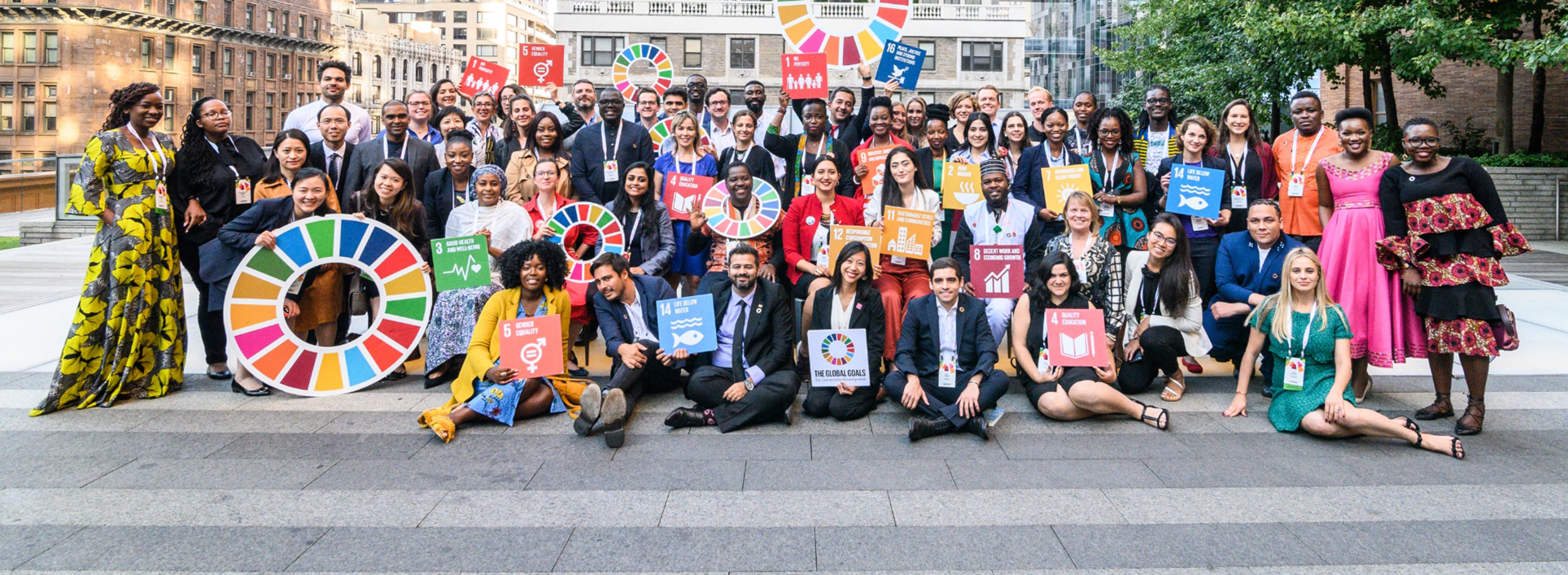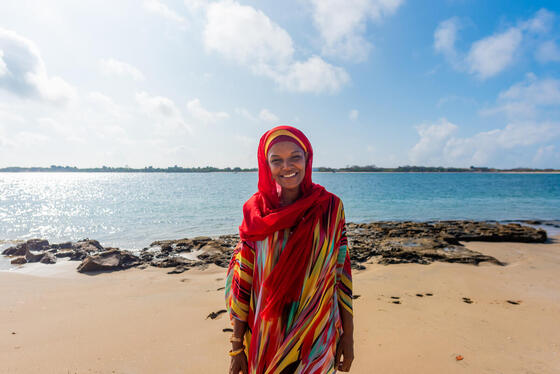
Lady Marieme Jamme Goalkeeper

Lady Mariéme Jamme: Activist, Visionary, Tech Evangelist
Founder, iamtheCODE
UK
2017 Goalkeepers Global Goals Innovation Award
Goal 4: Quality Education
In many parts of the world, tech education for girls and women is either nonexistent or grinds to a halt before high school. But in the past decade, we’ve seen people like Lady Mariéme Jamme tackle the educational inequities that leave girls and women behind. For her, coding is much more than stringing together 0s and 1s—it’s a path to new possibilities for women and to becoming breadwinners. Below are four of Lady Mariéme’s core principles for changing the future of technology education for the next generation of marginalized girls and women.
Technology is power
When Lady Mariéme arrived in the United Kingdom as an immigrant speaking no English, she needed to develop reliable, money-earning skills. She started with cleaning jobs in hotels in the southeast of England, but says, “I wanted to learn how to code because I wanted to be relevant like my peers.” Her journey began in a local library, where she taught herself to master Excel. Two years and many spreadsheets later, she had learned a total of seven new programming languages. Today, as a full-stack developer and teacher, she teaches her students skills that open doors to sought-after, high-paying developer roles. And, in what becomes a virtuous cycle, her students use their skills to build solutions for problems like poverty, internet connectivity, and refugee aid. Win-win.
Coding is a form of connection
“I don’t want people to see the word coding and be put off,” Lady Mariéme says. Coding was more than a job for her. She actually started coding to tell a story. But her story is not an easy one to tell. As a 5-year-old in Kaolack, Senegal, she was abandoned by her aristocratic parents. At age 11, she was abused by her Koranic teacher. Not long after, she was trafficked to Paris. It was only in her late teens that she found refuge in the UK. It’s where she first took to that library. Today, Lady Mariéme works with young girls from Kenya’s Kakuma refugee camp, creating space for them to share their difficult stories. Through learning new life skills and processing their stories, they can connect to—but also transcend—their past. As one of her South Sudanese students, Patience, put it, “I'm a refugee, but it’s not written on my back.”
Digital skills enable marginalized girls and women to reach their potential
Lady Mariéme’s students are often young girls and women who come from marginalized communities. Many bring with them stories of trauma. Lady Mariéme’s focus on mental health helps her identify girls whose learning speed and creativity are a means of survival. “That’s why it’s important that we utilize coding and the entire mechanism of learning fast and quickly to marginalized communities,” Lady Mariéme says. Through coding, her students learn how to convert their innate resilience, tenacity, and critical thinking to digital skills that they’ll need if they want to succeed in the global workforce.
Coding reinforces compassion
Technology can drive solutions, but more than that, it can catalyze deeper change.
That’s why Lady Mariéme is both a teacher and a mentor. “Mentoring is a transaction based on knowledge sharing, compassion, empathy, and kindness”, she says.
When teaching young girls to code, she uses that opportunity to help them learn about the 17 Global Goals. From climate change to quality education, her students use coding as a beautiful tool for advocacy and imagination. As young developers, they strengthen their attention to detail, which forces them to think about the user on the other side. It makes them stop and ask, What does the world need, and how can the world pay attention to us young refugee girls?
July 2021
